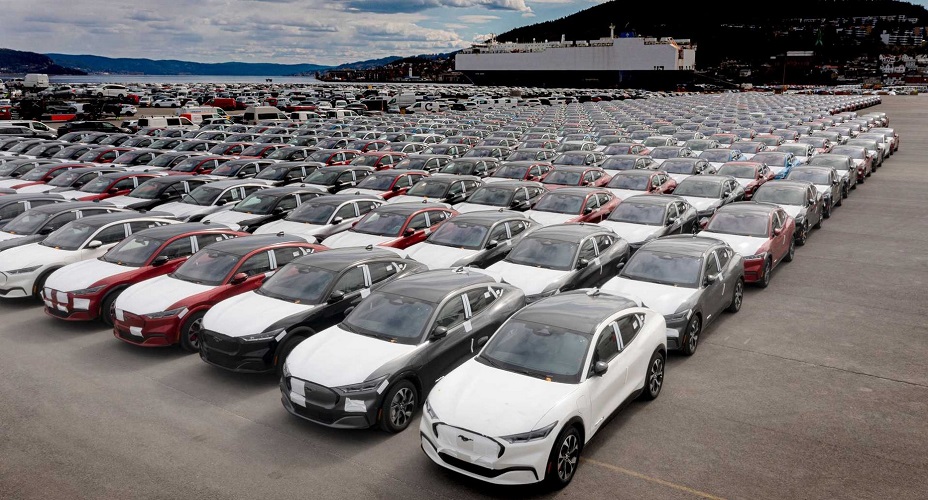According to the asset management firm Federated Hermes, “the demand for oil continues to record historically high levels, driven by fuel consumption in transportation,” which poses challenges in meeting eMobility objectives.

In this regard, Audra Delport, Head of Corporate Credit Research at the consultancy, asserts that it is “difficult to imagine such a profound change before 2030.”
These statements reference the Fit for 55 package imposed by the European Union.
This package aims to reduce net greenhouse gas emissions by at least 55% by 2030, compared to 1990 levels, and achieve climate neutrality by 2050.
Furthermore, the fund manager confirms that “investment flows into clean technologies continue to outpace spending on traditional fuels.”
Despite this, they consider the International Energy Agency’s (IEA) prediction of peak fossil fuel demand in less than 10 years (proposed by Fit for 55) “may be overly optimistic.”
However, data from the European Automobile Manufacturers’ Association (ACEA) tells a different story.
How is the eMobility market growing?
In the first six months of 2023, electric cars outsold diesel cars for the first time in history.
The market share of electric cars in June stood at 15.1%, compared to 13.4% for diesel cars.
Electric car registrations in June reached 158,252 units, signifying a 66.2% growth.
This was coupled with a year-on-year increase of 53.8% from January to June, with 703,586 zero-emission cars sold.
In August 2023, the market share of electric vehicles surpassed 20% for the first time (compared to 11.6% in August of the previous year).
Registrations of this technology increased by 118.1%, reaching 165,165 units, representing 21% of the market.
In this regard, the majority of European markets saw significant increases with double and triple-digit percentage gains.
The standout performers were Germany (37.3%), France (24.3%), and Italy (11.9%).
Meanwhile, from January to August, electric car sales recorded a substantial increase of 62.7%, with almost 1 million units registered.
On the other hand, registrations of hybrid-electric vehicles increased by 29% in August.
This amounted to a cumulative increase of 28.6%, with nearly 1.8 million units sold between January and August.
Meanwhile, plug-in hybrid car registrations increased by 5.5% in the eighth month, reaching 58,557 units.
Despite this growth, the market share of plug-in hybrid cars decreased from 8.5% to 7.4% in August.
In contrast, the diesel car market continues to decline, decreasing by 6% last month.
Currently, diesel cars hold a market share of 12.5%, compared to 16.1% in August of the previous year.
On the other hand, the gasoline car market grew by 2.1%.
However, the market share decreased from 38.7% to 32.7% compared to the previous year.
In summary electric vehicle sales in Europe are on the rise, while the demand for petroleum vehicles is declining.

In this context, Sigrid de Vries, ACEA’s Director-General, emphasizes: “European manufacturers are investing heavily in new drivetrain technologies while phasing out combustion engines.”
She asserts that European policy makers must support these efforts by building an industrial strategy that enables “innovation and manufacturing in Europe, and that also enables mobility for all.”
Moreover, they contend that initiatives at both the EU and national levels need to be intensified to accelerate the adoption of electric cars in the market.
This is because, according to ACEA data, accessibility to electric cars remains a significant obstacle for European consumers.
Read more: Von der Leyen Announced Probe into Chinese EV Subsidies








